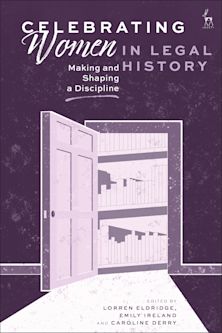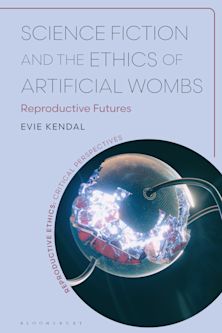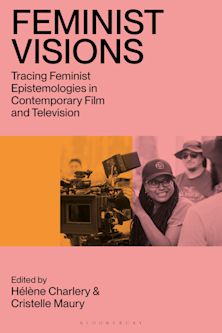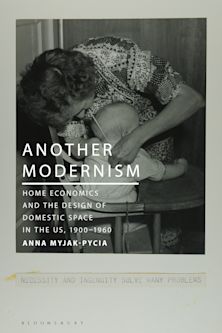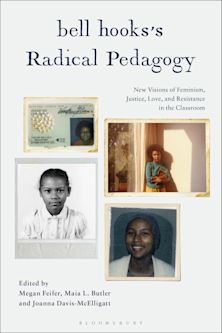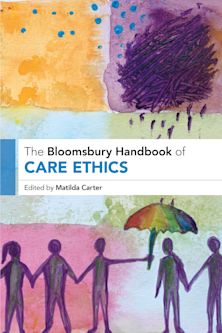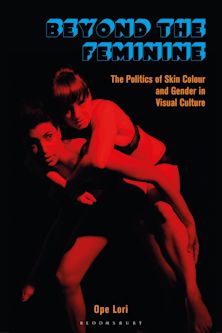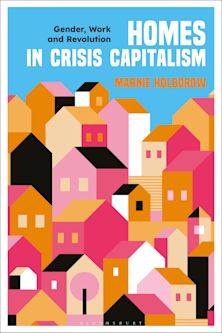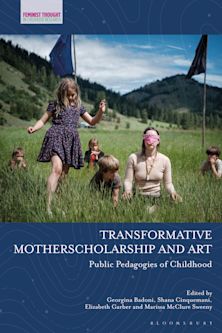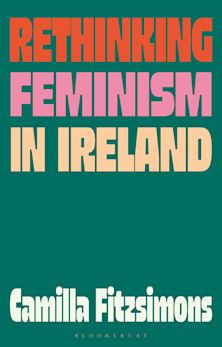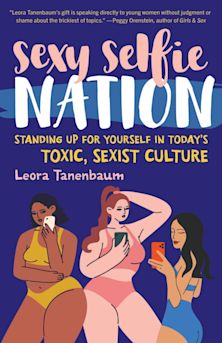- Home
- ACADEMIC
- Gender & Sexuality Studies
- Feminism
- Unraveling and Reweaving Sacred Canon in Africana Womanhood
Unraveling and Reweaving Sacred Canon in Africana Womanhood
Rosetta E. Ross (Anthology Editor) , Rose Mary Amenga-Etego (Anthology Editor) , Liz S. Alexander (Contributor) , Rose Mary Amenga-Etego (Contributor) , Rabiatu Ammah (Contributor) , Valerie Bridgeman (Contributor) , Melanie C. Jones (Contributor) , NaShieka D. Knight (Contributor) , Helen Adekunbi Labeodan (Contributor) , Elizabeth Pulane Motswapong (Contributor) , Ruth Oluwakemi Oke (Contributor) , Agnes Quansah (Contributor) , Rosetta E. Ross (Contributor) , Elizabeth Siwo-Okundi (Contributor) , Fatimatu N-Eyare Sulemanu (Contributor) , Antoinette B. Yindjara (Contributor)
Unraveling and Reweaving Sacred Canon in Africana Womanhood
Rosetta E. Ross (Anthology Editor) , Rose Mary Amenga-Etego (Anthology Editor) , Liz S. Alexander (Contributor) , Rose Mary Amenga-Etego (Contributor) , Rabiatu Ammah (Contributor) , Valerie Bridgeman (Contributor) , Melanie C. Jones (Contributor) , NaShieka D. Knight (Contributor) , Helen Adekunbi Labeodan (Contributor) , Elizabeth Pulane Motswapong (Contributor) , Ruth Oluwakemi Oke (Contributor) , Agnes Quansah (Contributor) , Rosetta E. Ross (Contributor) , Elizabeth Siwo-Okundi (Contributor) , Fatimatu N-Eyare Sulemanu (Contributor) , Antoinette B. Yindjara (Contributor)
You must sign in to add this item to your wishlist. Please sign in or create an account
Description
In this collection, continental and diasporan African women interrogate the concept “sacred text” and analyze ways oral and written religious “texts” intersect with violence against African-descended women and girls. While the sanctioned idea of a sacred text is written literature, this project interrupts that conception by drawing attention to speech and other embodied practices that have sacral authority within the social imaginary. As a volume focused on religion and violence, essays in this collection analyze religions’ authorization of violence against women and girls; contest the legitimacy of some religious “texts”; and affirm other writing, especially memoir, as redemptive. Unraveling and Reweaving Sacred Canon in Africana Womanhood arises from three years of conversation of continental and diasporan women, most recently continued in the July 6-10, 2014 Consultation of African and African Disaporan Women in Religion and Theology and privileges experiences and contexts of continental and diasporan African women and girls. Interlocutors include African traditionalists, Christian Protestants and Catholics, Muslims, and women embodying hybrid practices of these and other traditions.
Table of Contents
Section I. Reinterpreting, Revising, and Re-Inscribing Oral Texts
Chapter 1. “Akok?bere nso Nim Adekyee”: Women’s Interpretation of Indigenous Oral Texts, Rose Mary Amenga-Etego………3
Chapter 2.Exploring Yoruba Proverbs with Feminine Lexis as a Tool for Reimaging African Womanhood, Helen Adekunbi Labeodan………21
Chapter 3. A Critique of Indigenous “Wisdom” as Enshrined in Some Fanti Sayings and Practices on Wife-Beating in Ghana, Agnes Quansah………35
Section II. Embodied Texts, the Body as Text
Chapter 4.When Caged Bodies Testify: African and African-descended Women’s Memoirs as Sacred Texts, Liz Alexander and Melanie C. Jones………51
Chapter 5.“You Don’t Have the Right to Keep Us Silent, We Have Reference in Matters of Religion and Law”: Voices of Ghanaian Muslim Women in Dawah, Rabiatu Ammah………69
Chapter 6.Considering Violence Perpetrated against Women in Central Africa in the Light of God’s Word: Two Case Studies, Antoinette Yindjara………87
Chapter 7. Boko Haram Insurgence, the Chibok Girls’ Abduction and the Implications for the Girl Child in Nigeria, Ruth Oke and Helen Adekunbi Labeodan………93
Chapter 8.“Now You Have Struck a Rock”: Rizpah, Black Mama Trauma, and the Power of Shaming in the Face of the Powers, Valerie Bridgeman………107
Section III. Written Texts: Interrogating, Unmasking, and Taking Charge
Chapter 9.“Those Who Entrusted Their Affairs to a Woman Will not Prosper”: Its Implication in the Ghanaian Muslim Community, Fatimatu Sulemanu………121
Chapter 10.Judges 19 and the Virgin Daughter’s Trauma: “Small Voice” Implications for African Women and Girls, Elizabeth Siwo-Okundi………139
Chapter 11.Sita’s Story as a Text of Terror: A Motswana Woman’s Impressions, Elizabeth Motswapong………153
Chapter 12.Say My Name: Failure to Name, Misnaming, and Renaming as Acts of Violence against Africana Women, NaShieka Knight………167
Product details
| Published | 15 Dec 2015 |
|---|---|
| Format | Ebook (PDF) |
| Edition | 1st |
| Extent | 232 |
| ISBN | 9798216217480 |
| Imprint | Lexington Books |
| Series | Feminist Studies and Sacred Texts |
| Publisher | Bloomsbury Publishing |
About the contributors
Reviews
-
Using oral, embodied, and written sacred texts, in this volume, Continental and Diasporan African women unravel, challenge, and resist the violence done on women and girls of African descent in their commitment to reweaving affirming definitions of Africana womanhood, thus assuring readers that the proverbial hen, ‘...indeed also knows it is dawn.’ A must read for all justice-seeking readers.
Madipoane Masenya (Ngwan'a Mphahlele), University of South Africa
-
This book is a culmination of many years of conversation and collaboration between African women from the Continent and Diaspora, particularly North American women. As the title indicates, the women have taken on the challenge of re-reading sacred Oratures and scriptures from across the diverse cultures and religions that shape Africana consciousness). These texts are from Islam, Christianity, Indigenous Religions and in one case, Hinduism. They re-read with a view to ‘unraveling,’ that is, naming, deconstructing, and denouncing that which in the sacred texts and their interpretations subvert the human flourishing of women. Simultaneously, their goal is to re-read and re-weave the texts so that they reveal women, not just as victims of patriarchy and its texts. Rather, they read to reveal women as moral agents (Khalifa in Islamic language) who are determined not only to re-claim their right to speak that has been denied them under patriarchy, but to take on the duty to speak.
In so doing, these authors have shown that unlike the proverbial hen who knows that it is dawn but waits for the rooster to announce it, they know that its dawn and they announce this loud and clear through the essays. The dawn they announce is one of a new day, a future free of terror against women simply because of their gender… a terror which is often legitimized by ‘holy’ texts (texts of terror) whether in oratures of Indigenous religions or in the holy scriptures of Christianity, Islam, or even Hinduism. They long for and dare already to announce the dawn of a new day marked by gender equity and recognition of women as people rather than mere objects as they have been treated in many painful instances which the authors carefully document and ‘unravel.’
The book becomes a most valuable addition to the growing corpus of top notch theological and feminist writing by Africana women. The essays are incisive, insightful, well written, and well researched. The authors offer new voices and perspectives, even on the notion of ‘text’ itself with at least one essay considering women’s bodies as a ‘sacred text.’
I highly recommend this book. It most commendably carves a new niche in theological circles not just for African and African American women separately, but ‘Africana’ women speaking of common experiences under ‘texts of terror’ and also as agents of change, and in solidarity with each other pushing for a more livable future in Africa and beyond; not only for women, but for all.Teresia Hinga, Santa Clara University












